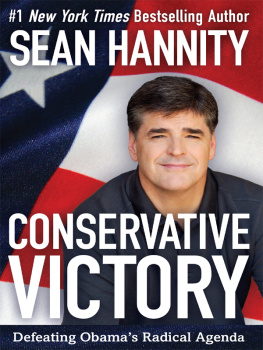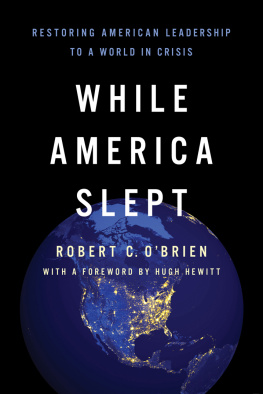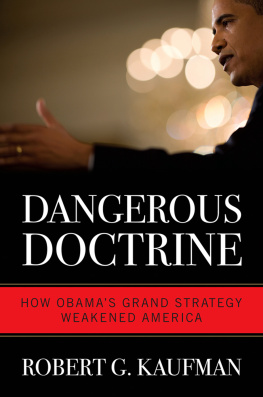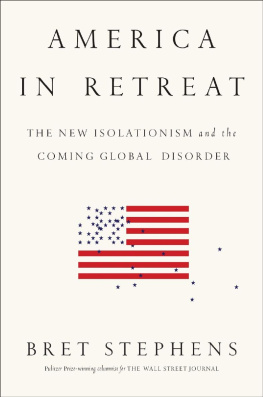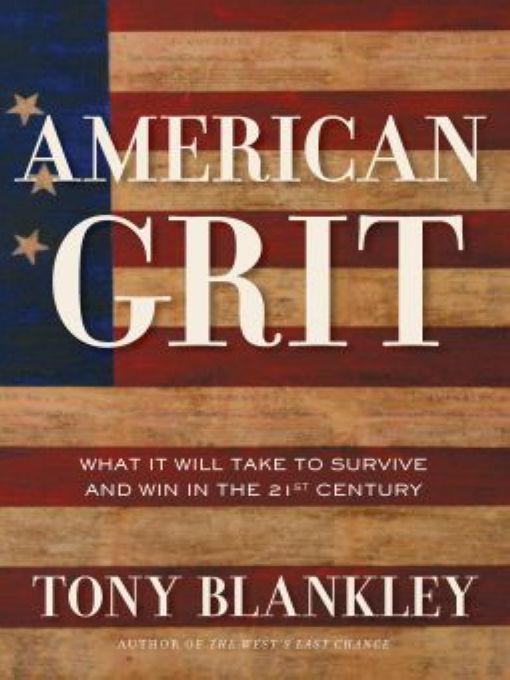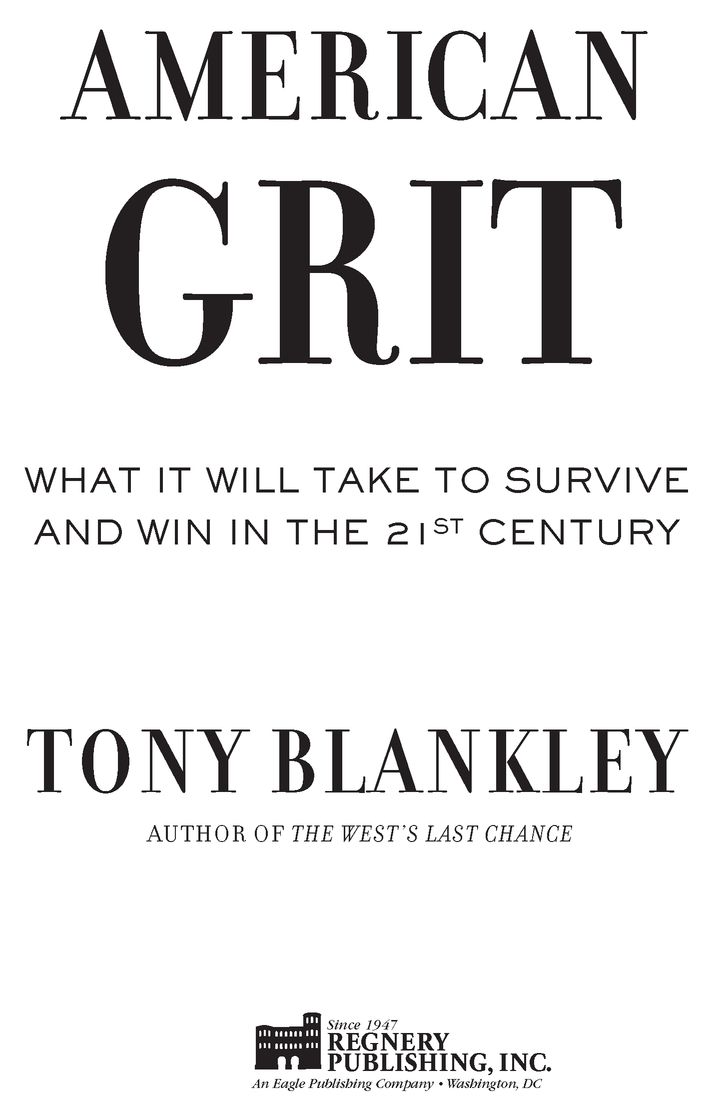Table of Contents
To our three children who we love so dearly, Trevor, Ana, and Spencer: May theyand all our countrys childrencontinue to commit their strength and intelligence to the cause of keeping America strong and free.
CHAPTER ONE
THE CASE FOR A NEW AMERICAN NATIONALISM
THESE ARE DANGEROUS DAYS FOR OUR COUNTRY. WE FACE ENORMOUS challenges at home and gathering threats from abroad. And just when the situation requires us to return to the proven traditions of our history, our government is led by a man, Barack Obama, and a Democratic Party that are seized of all the wrong values and policies for such a national struggle.
At a time of economic crisis we have a government run by a man who wants to adopt socialistic tax and spending policies to spread the wealthpolicies that will severely weaken our economys productive capacity. This capacity will be further damaged by President Obamas energy policies, which will hinder efficient energy production in furtherance of the chimera of absolute environmental purity. As our economic dominance is increasingly challenged by the looming economic giants of China, India, and even Brazil, our president opposes free trade and voices suspicion of private enterprise, which are the tools that give our economy its competitive edge.
At a time when Iran, one of the chief international sponsors of Islamic terrorism, draws closer every day to gaining possession of weapons of mass destruction, our foreign policy is being run by someone who believes that Mahmoud Ahmadinejadan Islamist of dubious sanity who denies the Holocaust, threatens to obliterate Israel, and is racing to develop nuclear weaponsis a leader we can talk to. With the Russians threatening to place missiles next to Poland, with North Korea still threatening nuclear proliferation, with the nuclear Islamic state of Pakistan in turmoil, with an ongoing global war against Islamist terrorists, and with anti-American regimes solidifying their power in Latin America, President Obama shows more concern for stopping the effective surveillance of terrorism suspects and protecting the rights of captured enemy combatants than for defending our national security.
At a time when our national unity is fraying and when the American people are dividing themselves into competing identity groups with an increasingly tenuous sense of collective destiny, our nations leader refuses to call for patriotic sacrifice for the good of the country. Instead, he promises only to further expand our ever-growing entitlements.
On these three crucial issuesthe economy, national security, and national unitythe United States faces critical challenges. As this book went to press, these dangers were brought home in a stark report released by the National Intelligence Council. In it, our top intelligence agencies predicted the coming decline of Americas dominance of global affairs. The next two decades, the report found, will likely be characterized by wars over natural resources, a growing number of rogue states, dire threats from nuclear proliferation, and the end of the dollars position as the worlds primary currency. Just after the reports release, a horrific Islamic terrorist attack in Mumbai, India left nearly 200 people dead, providing a grim reminder of the lurking danger that threatens every democracy.
President Obama campaigned on promises of hope and change. But these are not the most pressing issues of the moment. Our biggest concern, in fact, is our national survival.
SHIFTING WINDS
Americans have repeatedly overcome serious adversities, but in the past weve had the wind of history at our back. For two centuries no nation on earth could match our combination of land, natural resources, and our free, disciplined, industrious, religious, productive, and entrepreneurial people.
Empowered by our many blessings, we Americans have always had the luxury of a wide margin for error. We have thrived despite episodic bad policy from Washington, ill-conceived wars, counterproductive educational and social policies, excessive taxes, natural disasters, and even the occasional madness of our collective judgment. Our endurance was enabled by our uncanny sense of balance between the prerogatives of the individual and the need for collective sacrifice and action.
Up until World War II we were masters of our fate within our lands. While we traded with the world, we didnt need the worldand the world could do little to us. And for a long half century after the war our economic, military, diplomatic, cultural, and political strength assured us a smooth passage through history. Two poorly judged, and embarrassingly ended, wars in Asia (Korea and Vietnam) barely left a ripple of adversity in our postwar foreign affairs. So strong were we, we could afford to get bloodied in war and yet maintain our global preeminence.
But now the magnitudes work against us.
We once developed our own vast energy supplies. Now we rely on foreign oil, sending almost a trillion dollars a year to Middle Eastern countries that use their oil money to fund the Islamist war of terror against us. This debilitating dependence has sucked us into the religious, tribal, and national struggles and wars of the Middle East. The day will probably come, if we dont quickly change things, when we will no longer fight to protect friendly regimes but will have to seize, hold, extract, and export the oil we need.
During wartime, we traditionally have fielded well-staffed armies big enough to overwhelm our enemies. Now, the military has shrunk to a level that seriously threatens our ability to respond to international crises.
We used to band together during threatening times, putting the country first. Now, the idea of personal sacrifice is absent from public discussion. Even the horror of the September 11 attacks was not enough to galvanize our leaders into asking Americans to shake off their complacency and personally contribute to the countrys security.
All these challenges have led me to reconsider what principles of governance are best suited to overcome the dangers before us. In my previous book, The Wests Last Chance: Will We Win the Clash of Civilizations?, I argued that America cannot become strong enough to win the war on Islamic terrorism by following the strict libertarian principles I believed in before and during my years on Ronald Reagans White House staff.
But it never occurred to me precisely where my political philosophy was moving until an appearance on the McLaughlin Group television show a few years ago. During one of our fierce debates about the Iraq War, John McLaughlin turned to me and asked What do you neo-cons want? I responded pugnaciously, Im not a neo-con, to which John reasonably inquired, Well what are you? With the red light of the television camera focused on me, I paused and thought for a second or two, and then more or less blurted out, Im a nationalist!
That ended the conversation, but only started me thinking more about my answer. Was it the right answer? Am I a nationalist? What does that mean in America in the twenty-first century?
I still emphatically characterize myself as a conservative. But as one goes through the various zoological categories of the breedneo, paleo, social, traditional, cultural, free marketnone of them quite captures the driving thrust of my views these days.


